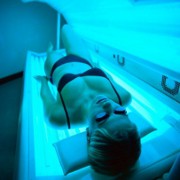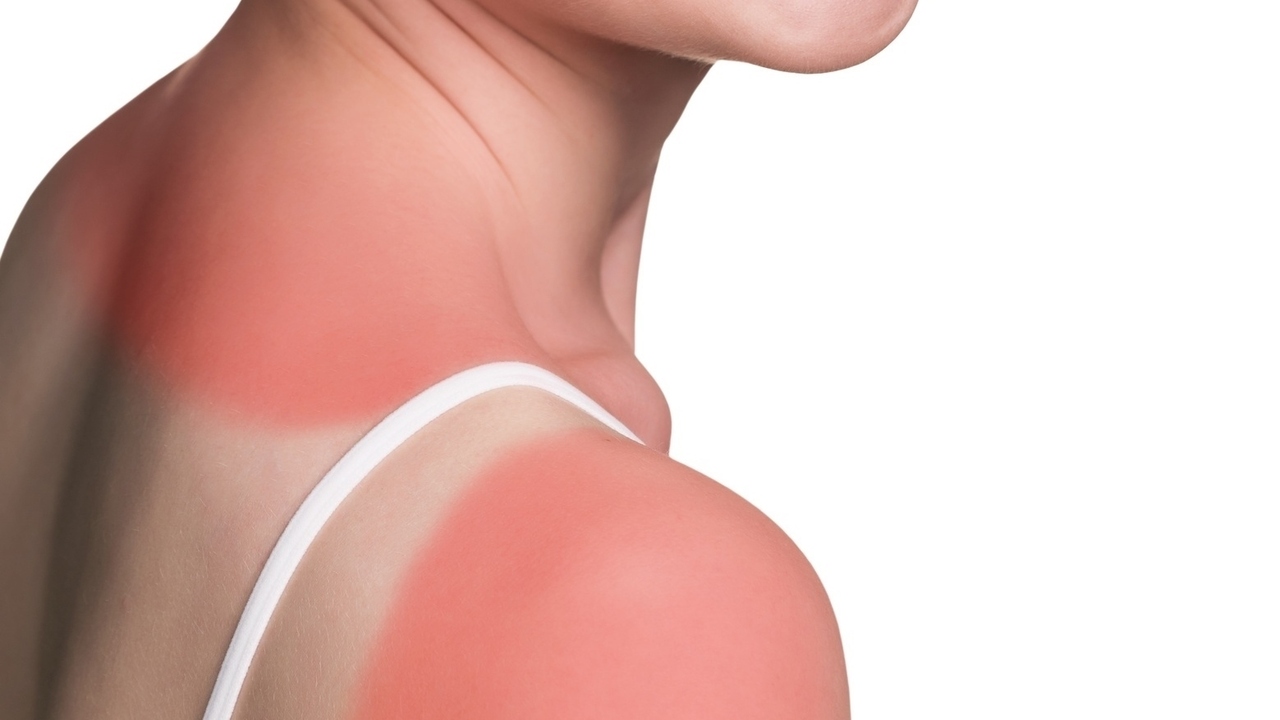 Photo: Getty Images
Photo: Getty Images
The American Academy of Pediatrics announced recently that it wants to make tanning salons and beds illegal for anyone under the age of 18. The WHO (World Health Organization), the American Academy of Dermatology and the American Medical Association agree.
The National Cancer Institute lists skin cancer as the most common form of cancer, with over 68,000 cases of melanoma and a whopping two million cases of non-melanoma skin cancers diagnosed every year. Skin cancer diagnoses total nearly half of all cancers. Yet teens under the age of 18 are flocking to tanning salons in record numbers. Some blame the influence of TV shows like Jersey Shore, where tanning is considered mandatory and others look at a general consensus that being tanned equates to beauty. Still referred to as a “healthy tan”, browner skin on white girls is far preferable to their own natural white skin that is deemed unhealthy and unattractive. "Tanorexia" is an unofficial term used for people who tan compulsively.
CNN covered the story of Samantha Hessel, who began using tanning beds on a frequent basis as a freshman in high school – about the age of 14. She wanted to look good and said she believed that “…society makes you feel being tanned is prettier than being pasty white." By the time she was 19, Hessel had malignant skin cancer- melanoma- brought on from tanning. She had surgery and recovered but the shock of realizing the dangers of tanning beds caused her to advocate on behalf of the Melanoma Research Center. Hessel is not alone – the number of skin cancer diagnoses among women aged 15 to 39 has increased by 3 percent every single year for the past two decades.
Tanning bed owners and The Indoor Tanning Association balk at the notion of enforcing an Over 18 mandate for using tanning beds. Already smarting from a 10 percent tax levied on them last year, they say there is no evidence that the younger the tanner, the more likely she is to get skin cancer idea is true. They believe the government needs to stay out of this industry and give the power back to parents. Most tanning salons offer sales, group packages or unlimited monthly tanning for as little as $10. Advertising begins early in the New Year to target teens preparing for Spring Break and then summer bridal packages and on to homecoming specials as late as October and November. Every month seems to bring a special reason to tan.
Studies suggest that at least one quarter of children aged from 13 to 19 try indoor tanning at least once. Since indoor tanning has been scientifically linked to skin cancer (many tanning salon owners/associations disagree with this) doctors are calling for an outright ban on their usage for anyone under the age of 18. The tanning industry has been banned by the Federal Trade Commission to say or imply that tanning is safe and is no longer allowed to claim that indoor tanning promotes or creates healthy levels of vitamin D.
Granted, the sun can be good for us. Fifteen to twenty minutes a day is a healthy way to promote vitamin D levels and complement mental health. But for tanning - safer alternatives like fake tan should be used.
Appealing to vanity may be another ploy to stop teens from tanning indoors. Estimates given by dermatologists suggest that tanning prematurely ages the skin by ten to twenty years. It remains to be seen if indoor tanning for those under 18 becomes illegal. Until then, parents need to educate their daughters and sons about the dangers of tanning and if necessary, enforce a ban themselves.
For more on the Samantha Hessel story, click here: http://www.cnn.com/2011/HEALTH/02/28/tanning.skin.cancer/index.html
Tell Us
Do you engage in indoor tanning? Does your young daughter or son?





Add a CommentComments
There are no comments yet. Be the first one and get the conversation started!